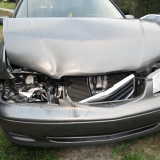机遇:灾难的主宰

心理学家和职业顾问们发现人们对挫折的应变和适应能力是他们一生幸福和事业成功的一大预示。
?当我开办我的第一个公司时,我原以为已经为跌宕起伏的创业生活做好了准备,我单身,有一个很大的(廉价的)公寓,还有支持我的朋友和家人来为我祝贺。
但才过了9个月,我就遇到了第一次(将会有更多)的灾难:我们资金缺乏了。当时还有3周我就要结婚了,我的未婚妻已迁居加州——失业——为了和我在一起。可伴随着电信的彻底塌跨,我们的投资市场也崩溃了。

我们挺过去了(仅此而已),并继续去建立一个盈利的公司。今天,当我回首那一刻灾难,发现它正是我们现在公司成功的关键。事实就是,我们只有散尽钱财,才会了解什么是创业成功所真正需要的。它迫使我不得不冲锋陷阵寻找潜在客户和赞助商,并在之后与美国军队签订了一项重要合同。虽然我们仍遭受了两年的贫乏的资金流通,但我们已经走出谷底。从那以后,我们带着决心和专注来执行我们的业务计划。我们濒死的经验教会我们形成一套纪律,这些纪律使我们能够生存至今。
当我告诉来参加我的职业生涯规划工作坊的研究生和博士后,资金缺乏是发生在我公司的一件最好的事情时,我看到了一些困惑的表情。在研究生学院也会碰到起起落落,但如此规模的灾难是罕见且不受欢迎的。科学生涯吸引不少人的的一方面,我怀疑就是如果你聪明且工作努力,你可以获得一个安全而可预见的职业发展道路直到退休。在技术领域有一个高级文凭——这是一个安全的职业选择,对吧?
没有什么弯路,挫折——甚至灾难——是创业生涯和科学生涯的必然的部分,当它们来临时,你如何对付它们,还有你在一场灾难中所采取的态度,相当程度上决定了这事件会造成多大的灾害和最终的混乱。
恭喜你!你被拒绝终身任职!
我的朋友Tim就是一个很好的例子。Tim是化学专业一个非常出色的研究生,在西海岸的某研究所做博士后。作为一个富有成果的研究小组的成员,Tim在他3年的博士后工作中发表了一批优秀论文,其中一篇大有潜力。当他获得在新英格兰的某富有声望的文理学院的一个预备终身职位,他以为他梦想的科学生涯终于成真。
Tim当一个学院的化学教授非常出色。他的教学评价取得了良好的成绩而且开办了一个富有成果的实验室。夏季,他回到加利福尼亚州的研究所,并继续辛苦的发表论文。到他任期时,他作为第一作者发表的论文几乎化学系里其他人的总和。
所以,当他打开来自院长的信,被告知他被拒绝终身任职,他肯定那是个错误,他的任职文件袋肯定已经与某个不幸的助理教员的交换了。经过他的部门主管的确认,Tim很挫败——还很愤怒,这事情没有办法解释,完全算是个灾难,对他或他的职业生涯都是。
Tim于是起草一份抗议书反驳院长,但当他与同在他度过夏天的那个研究所工作的同事经过一个很长的交谈以后,他停了下来。他意识到他有一个强大的专业同事组成的关系网,那些同事器重他和他的工作,在那里,他有一个接近常设的供职,而且加利福尼亚的天气比他所习惯的还好。
Tim迁往西海岸。经过6个月的临时分配,他定在研究所一个永久员工职位,他的职业生涯以及他的一生像一个火箭起飞了。他与恋爱多年的女友结婚(她因合同没续签被迫离开一个高校教学工作),现在他已被公认是那个领域的有才智的领导。
“如果我不是被拒绝终身任职,”Tim反映,“我就不会这么专心做我的研究,也不会迁移到了加州,而我的女友和我也许就不会在一起”。
Psychologists and career counselors have found that people's ability to cope with and adapt to setbacks when they occur is a major predictor of overall happiness and professional success.
When I started my first company, I thought I was prepared for the ups and downs of the start-up life. I was single, had a great (and cheap) apartment, and had supportive friends and family cheering me on.
But only 9 months into the adventure, I encountered the first (of what would be many) disasters: We ran out of money. I was 3 weeks away from getting married, my fiancée had moved to California--jobless--to join me, and the investment market had collapsed in the wake of the telecoms meltdown.
We survived (barely) and went on to build a profitable company. Today, I look back on that moment of disaster and realize that it was absolutely pivotal to the success of our company. Fact is, we needed to run out of cash in order to learn what was really necessary to make our venture succeed. It forced me into a full-frontal assault on potential customers and sponsors and led us to land a major contract with the U.S. Army later that year. Although we suffered from poor cash flow for two more years, we had turned the corner. From then on, we executed our business plan with determination and focus. Our near-death experience forced us to develop the discipline that has allowed us to survive ever since.
When I tell the graduate students and postdocs who attend my career-development workshops that running out of money was one of the best things that happened to my company, I get some confused looks. Graduate school comes with its ups and downs, but disasters of that magnitude are rare and unwelcome. One of the aspects of a scientific career that I suspect ATTRACTS many people is the idea that, if you're bright and work hard, you can follow a safe and predictable career path all the way to retirement. An advanced degree in a technical field--that's a safe career choice, right?
No. Detours and setbacks--even disasters--are inevitable parts of the life of a start-up and a scientific career. How you deal with them when they come, and the attitude you adopt during a catastrophe, to a large extent determines how much damage--and, eventually, how much upside--the event creates.
Play time
My friend Tim is a good example of this. Tim was a very successful graduate student in chemistry and landed a plum postdoc at a research institute on the West Coast. A member of a productive research group, Tim pumped out a number of excellent papers during his 3-year postdoc, one of which was seminal. When he was offered a tenure-track position at a prestigious liberal arts college in New England, he thought his dream of a scientific career had finally come true.
Tim did very well as a college chemistry professor. He got good marks on his teaching evaluations and started a productive laboratory. During summers, he returned to the institute in California and continued to churn out publications. By the time he came up for tenure, he had nearly as many first-author publications as the rest of the chemistry department combined.
So when he opened the letter from the dean that told him that he had been denied tenure, he was certain there had been a mistake. He was sure his tenure package had been switched with that of some hapless assistant faculty member. After receiving confirmation from his department chair, Tim was devastated--and furious. There was no way to interpret this event as anything but a complete disaster for him and his career.
Tim started to draft a rebuttal to the dean of the faculty, but he stopped after having a long conversation with one of his colleagues at the institute where he spent his summers. Tim realized that he had a strong network of professional colleagues who thought highly of him and his work. He had something close to a standing offer from the institute where he spent his summers, and the weather in California was a lot better than what he was used to.
Tim relocated to the West Coast. After a 6-month temporary assignment, he landed a permanent staff position at the institute. His career, and his life, took off like a rocket. He married his girlfriend of several years (who herself was forced out of a college teaching job when her contract was not renewed) and today is recognized as one of the intellectual leaders of his field.





